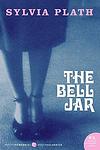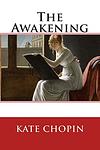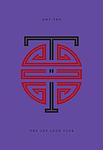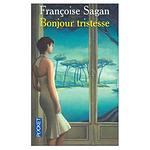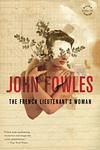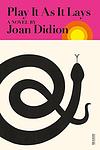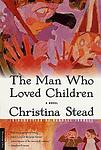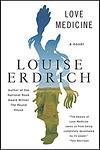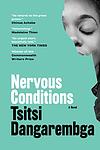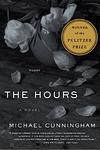The Greatest "Psychological, Women's Studies" Books of All Time
Click to learn how this list is calculated.
This list represents a comprehensive and trusted collection of the greatest books. Developed through a specialized algorithm, it brings together 300 'best of' book lists to form a definitive guide to the world's most acclaimed books. For those interested in how these books are chosen, additional details can be found on the rankings page.
Genres
The Psychological genre of books typically explores the inner workings of the human mind and emotions, often delving into complex and sometimes disturbing psychological states. These books may focus on mental illness, trauma, relationships, or personal growth, and often challenge readers to confront their own beliefs and perceptions. Psychological books may be suspenseful, thought-provoking, and emotionally intense, offering readers a deep and often unsettling glimpse into the human psyche.
Women's Studies is a category of books that focuses on the experiences, perspectives, and contributions of women in society. It encompasses a wide range of topics, including gender roles, feminism, women's history, sexuality, and reproductive rights. The goal of Women's Studies is to promote a deeper understanding of the social, cultural, and political issues that affect women, and to empower women to challenge and change the status quo. Books in this category often offer critical analysis and insights into the ways in which gender intersects with other forms of oppression, such as race, class, and sexuality.
Countries
Date Range
Reading Statistics
Click the button below to see how many of these books you've read!
Download
If you're interested in downloading this list as a CSV file for use in a spreadsheet application, you can easily do so by clicking the button below. Please note that to ensure a manageable file size and faster download, the CSV will include details for only the first 500 books.
Download-
1. Beloved by Toni Morrison
This novel tells the story of a former African-American slave woman who, after escaping to Ohio, is haunted by the ghost of her deceased daughter. The protagonist is forced to confront her repressed memories and the horrific realities of her past, including the desperate act she committed to protect her children from a life of slavery. The narrative is a poignant exploration of the physical, emotional, and psychological scars inflicted by the institution of slavery, and the struggle for identity and self-acceptance in its aftermath.
-
2. Mrs. Dalloway by Virginia Woolf
The novel chronicles a day in the life of Clarissa Dalloway, a high-society woman in post-World War I England, as she prepares for a party she is hosting that evening. Throughout the day, she encounters various characters from her past, including a former suitor and a shell-shocked war veteran. The narrative jumps back and forth in time and in and out of different characters' minds, exploring themes of mental illness, existentialism, and the nature of time.
-
3. The Scarlet Letter by Nathaniel Hawthorne
Set in 17th-century Puritan Boston, this novel tells the story of a woman who conceives a daughter through an affair and struggles to create a new life of repentance and dignity. She is forced to wear a scarlet "A" on her dress as a sign of her adultery while her lover, a revered local minister, remains unnamed and unpunished. Throughout the book, themes of sin, legalism, and guilt are explored.
-
4. The Bell Jar by Sylvia Plath
The novel follows the story of a young woman who wins a guest editorship at a magazine in New York City and, after a series of personal and professional disappointments, suffers a mental breakdown and returns to her family, where she continues to struggle with depression and suicidal thoughts. The protagonist's experiences in psychiatric institutions and her attempts to reclaim her life are depicted with brutal honesty, making it a poignant exploration of mental illness and the societal pressures faced by women in the mid-20th century.
-
5. The Golden Notebook by Doris Lessing
The novel centers around a woman named Anna Wulf, a writer who keeps four notebooks, each representing a different aspect of her life: her experiences in Africa, her current life in London, a novel she is writing, and her personal experiences. As Anna's mental state deteriorates, she attempts to unify her fragmented self in a fifth notebook, the golden notebook. The novel explores themes of mental breakdown, communism, the changing role of women, and the fear of nuclear war.
-
6. The Heart Is A Lonely Hunter by Carson McCullers
The novel explores the spiritual isolation of misfits and outcasts in a small town of the U.S. South. Its protagonist is a deaf-mute who becomes the confidant for various troubled souls including a black physician, a bitter labor activist, a lonely young girl, and a struggling café owner. Each pours their heart out to him, but he remains unable to respond, reflecting the deep human need for connection and understanding.
-
7. The House of Mirth by Edith Wharton
Set in the backdrop of New York's high society during the turn of the 20th century, the novel follows the life of Lily Bart, a beautiful but impoverished woman of social standing. As she navigates the pressures and expectations of her social circle, Lily grapples with the need to secure a wealthy husband to maintain her lifestyle. However, her romantic inclinations and her desire for personal freedom come into conflict with societal norms, leading to her tragic downfall.
-
8. The Awakening by Kate Chopin
"The Awakening" is a novel set in the late 19th century New Orleans, which explores the life of a young woman trapped in societal and marital expectations. She embarks on a journey of self-discovery and independence, defying the norms of her time. The protagonist challenges the traditional roles of women as she seeks personal fulfillment, experiences sexual awakening, and struggles with her desires and responsibilities. The book is a critique of the repressive social norms, particularly regarding women and marriage, of the Victorian era.
-
9. The God of Small Things by Arundhati Roy
This novel is a poignant tale of fraternal twins, a boy and a girl, who navigate through their childhood in Kerala, India, amidst a backdrop of political unrest and societal norms. The story, set in 1969, explores the complexities of their family's history and the tragic events that shape their lives. Their mother's transgression of caste and societal norms by having an affair with an untouchable leads to disastrous consequences, revealing the oppressive nature of the caste system and the destructive power of forbidden love. The novel also delves into themes of postcolonial identity, gender roles, and the lingering effects of trauma.
-
10. Women in Love by D. H. Lawrence
"Women in Love" is a novel that explores the complex relationships of two sisters, Ursula and Gudrun Brangwen, as they navigate their passions, desires, and connections with two men, Rupert Birkin and Gerald Crich, in post-World War I England. The novel delves deep into the psychological aspects of love, questioning traditional romantic love and proposing a more modern, individualistic approach to relationships. It also explores themes of industrialization, modernity, and the nature of human existence.
-
11. The Joy Luck Club by Amy Tan
This novel explores the complex relationships between four Chinese-American mothers and their American-born daughters. The narrative switches between the perspectives of the eight women, revealing their pasts, their struggles with cultural identity, and the misunderstandings that have grown between the generations. The mothers, who all experienced hardship in their native China, want their daughters to have better lives and thus push them to excel in America. The daughters, in turn, struggle to reconcile their American surroundings with their Chinese heritage.
-
12. Nightwood by Djuna Barnes
"Nightwood" is a modernist novel that explores the complex relationships and sexuality of a group of Americans and Europeans living in Paris in the 1920s. The story primarily revolves around the tumultuous love affair between two women, one of whom is a married aristocrat. The narrative, known for its poetic and dense language, delves deep into the characters' psyches, exploring themes of identity, gender, and desire. The novel is also notable for its frank and groundbreaking depiction of homosexuality and transgender issues.
-
13. Bonjour Tristesse by Francoise Sagan
This novel centers around a 17-year-old girl living with her playboy father in the French Riviera. The pair lead a carefree, hedonistic lifestyle until the father decides to remarry, causing the protagonist to hatch a plan to prevent the marriage and return to their old way of life. The story explores themes of youth, love, and the struggle between desire and morality.
-
14. The French Lieutenant's Woman by John Fowles
Set in the Victorian era, the story revolves around a complex love triangle involving a gentleman engaged to a well-bred woman and his infatuation with a mysterious woman known as the French Lieutenant's Woman. This woman, shrouded in scandal and mystery, challenges the protagonist's conventional views of society and morality. The novel, known for its metafictional style, explores themes of freedom, responsibility, and the oppressive social norms of the time.
-
15. Play It As It Lays by Joan Didion
The novel centers around a woman named Maria Wyeth, a former model and actress, who is drifting through life in the 1960s Hollywood scene. As she struggles with a failing marriage, a difficult relationship with her daughter, and a career that's spiraling downwards, she grapples with existential despair. Told in a series of fragmented narratives, the story reveals Maria's mental breakdown, her self-destructive behavior, and her desperate attempts to find meaning in a seemingly meaningless world.
-
16. The Man Who Loved Children by Christina Stead
This novel explores the complex dynamics of the Pollit family, focusing on the relationship between the egotistical patriarch Sam and his idealistic daughter Louie. Set in Washington D.C. during the 1930s, the story provides a stark portrayal of a dysfunctional family, where Sam's delusional optimism and insensitivity clash with Louie's growing disillusionment and rebellion. The narrative delves into themes of family conflict, emotional abuse, and the struggle for individual identity within the confines of family expectations.
-
17. The Hour of the Star by Clarice Lispector
"The Hour of the Star" is a poignant narrative that explores the life of Macabéa, a poor, unattractive, and naive typist living in the slums of Rio de Janeiro. The story is narrated by Rodrigo S.M., a sophisticated writer who struggles with how to accurately portray Macabéa's simple existence and her tragic fate. The novel delves into themes of identity, poverty, and the human condition, presenting a stark contrast between the lives of the rich and the poor, the educated and the ignorant, and the beautiful and the plain.
-
18. Love Medicine by Louise Erdrich
"Love Medicine" is a novel that explores the lives of several generations of a Native American family living on a reservation in North Dakota. The narrative is presented through a series of interconnected stories, each told from the perspective of different family members, and spans over 60 years, from 1934 to 1999. The book explores themes of love, family, identity, and the struggle between tradition and modernity. It provides a deep and poignant look into the complexities of Native American life and culture, and the challenges faced by the community.
-
19. Passing by Nella Larsen
"Passing" is a novel about two light-skinned African-American women, Irene Redfield and Clare Kendry, who can 'pass' as white. Set during the Harlem Renaissance, the story explores the intricacies and challenges of racial identity in 1920s America. Clare, who has chosen to live as a white woman, married to a racist who is unaware of her true heritage, risks everything when she reconnects with her childhood friend Irene, causing both women to grapple with their identities and desires, leading to tragic consequences.
-
20. Nervous Conditions by Tsitsi Dangarembga
"Nervous Conditions" is a semi-autobiographical novel set in colonial Rhodesia in the 1960s. The story follows a young girl from a poor family who gets the opportunity to receive an education after her brother's death. Despite the struggles she faces - including culture shock, racism, and the inherent sexism in both her native and adopted cultures - she perseveres and manages to succeed. The novel explores themes of race, colonialism, and gender through the lens of a young African woman's coming-of-age story.
-
21. Woman at Point Zero by Nawal El Saadawi
"Woman at Point Zero" is a powerful novel about a woman named Firdaus who, after a life filled with hardships and abuse, finds herself on death row in an Egyptian prison. The narrative explores her life story, from her childhood of poverty and genital mutilation to her experiences with domestic violence, prostitution, and finally murder. Through her journey, the book offers a profound critique of patriarchal society and the systemic oppression of women.
-
22. Three Lives by Gertrude Stein
"Three Lives" is a series of novellas that explore the lives of three working-class women living in the United States at the turn of the 20th century. Each story provides a detailed psychological portrait of a different woman: a black housekeeper, a worldly-wise servant, and a lower-middle-class German woman. The narrative delves into their personal struggles, their relationships, and their attempts to navigate the societal constraints of their time.
-
23. The Bell by Iris Murdoch
"The Bell" is a novel that explores the dynamics of a lay religious community living next to an enclosed order of nuns in the English countryside. The story is centered around the arrival of a new bell for the abbey, the discovery of an old bell in the lake, and the interplay between the community's members, their individual struggles, and their shared faith. The book delves into themes of love, guilt, sexuality, and the search for personal redemption.
-
24. The Hours by Michael Cunningham
The novel is a reimagining of Virginia Woolf's "Mrs. Dalloway" and follows three women from different time periods, each of whom are profoundly affected by Woolf's work. The narrative alternates between Virginia Woolf as she writes "Mrs. Dalloway" in 1923, a 1950s housewife who is reading the novel, and a contemporary woman who is essentially living the life of the titular character. These three storylines eventually converge in a powerful exploration of mental illness, sexuality, and the transcendent power of literature.
-
25. Clear Light of Day by Anita Desai
"Clear Light of Day" is a novel set in Old Delhi, which explores the dynamics of the Das family. The story shifts back and forth in time, reflecting on the lives of siblings Bim, Raja, Baba, and Tara, and their relationships with each other and their aunts. The narrative delves into themes of memory, time, and decay, as well as the political upheaval of the Partition of India. The novel is a poignant study of family relationships, personal change, and loss.
Reading Statistics
Click the button below to see how many of these books you've read!
Download
If you're interested in downloading this list as a CSV file for use in a spreadsheet application, you can easily do so by clicking the button below. Please note that to ensure a manageable file size and faster download, the CSV will include details for only the first 500 books.
Download


